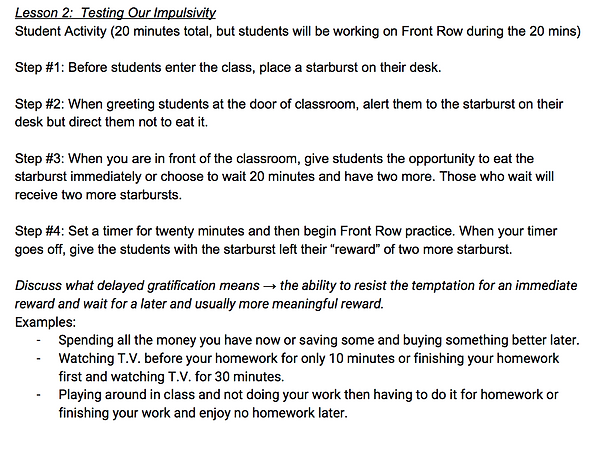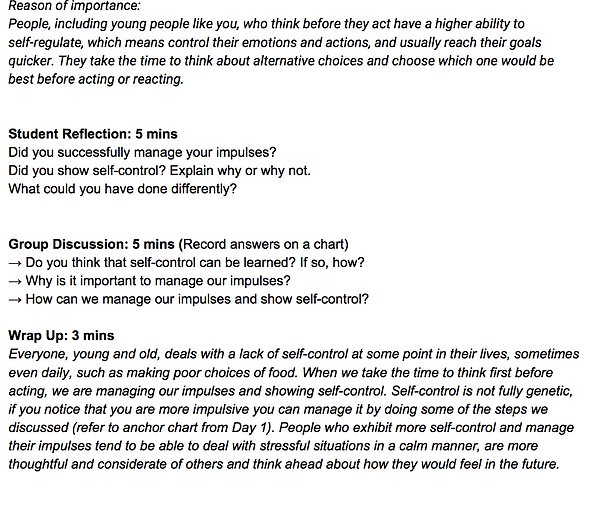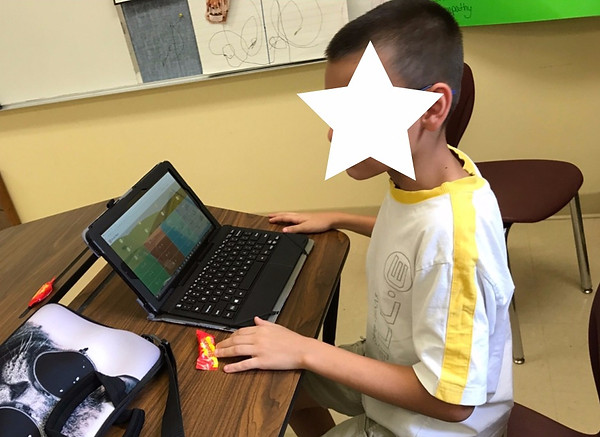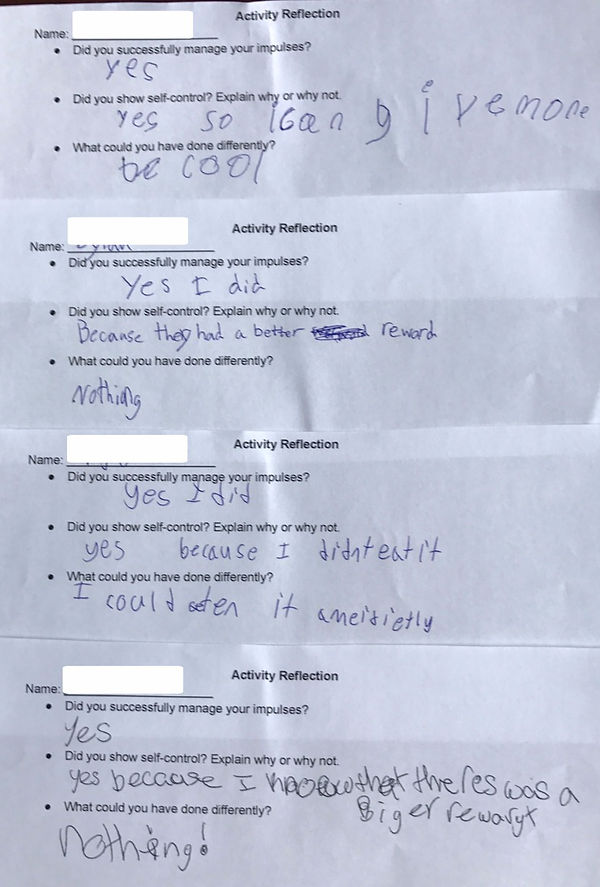HALEY BRITTINGHAM ⍚ PORTFOLIO
IMPULSIVITY TEST
After explicitly teaching what managing impulsivity means and ways to actually do it, I had students test their impulses by trying out the well-known "marshmallow test" but we used Starbursts.


Upon students walking into the math/science room, I told them that there was a treat on their desks, but they are not to touch it until I give further directions.
Once they were seated and started their Front Row math practice, I told them they had two options: 1) eat the treat now or 2) wait and they will receive one more treat.
I was quite impressed because all of them decided to wait, some played with the wrapper, and one even opened it, but overall they each resisted the want to eat it right away.
After twenty minutes, we reviewed their "results" and then I shared with them that what they just did was "test" their impulsivity.
It was quite interesting to see that no one gave in, although, during that period, two students were "impulsive" in other ways such as making distracting noises, talking, and playing with things from their desk.
Although students were able to delay gratification, I knew they still needed to work on managing other types of impulses such as the ones mentioned above.
Lesson


When discussing how they "managed" their impulse of wanting to eat their Starbursts the students shared that they used different methods, which we later described as ways to delay gratification.
Their methods:
-
Hide it, so they don't see it
-
Don't touch it
-
Put it where you can see it, touch it and then focus on your work
They each had their own method along with the other students in the class, some were distracted by the Starbursts' presence while others paid it no attention.
Students During the Test
Student Reflections
These are some of the student reflection sheets. Each student was very proud that they "managed" their impulses primarily because that meant they would receive another treat.
Their reasoning for "Did you show self-control?" was interesting. Two of the students explicitly mention that they knew there was a "bigger" reward at the end.
For the last question, I assumed most of them would have eaten the treat yet they didn't, so when reflecting on what they could have done differently, most said "nothing" because they knew they had made the better choice.

Reflection
Having students participate in a real mini-experiment gave them the chance to see how they managed their impulses. It provided a real-world example of how we have to make decisions every day that could benefit from managing one's impulsivity and delaying gratification. Managing impulsivity is an essential skill and habit of mind to possess especially as they are progressing through school. Learning how to manage one's impulsivity will help them complete tasks, look forward to gratification, understand and use the "think before acting" concept and most importantly it will help them stay more in control of their emotions during challenging situations.